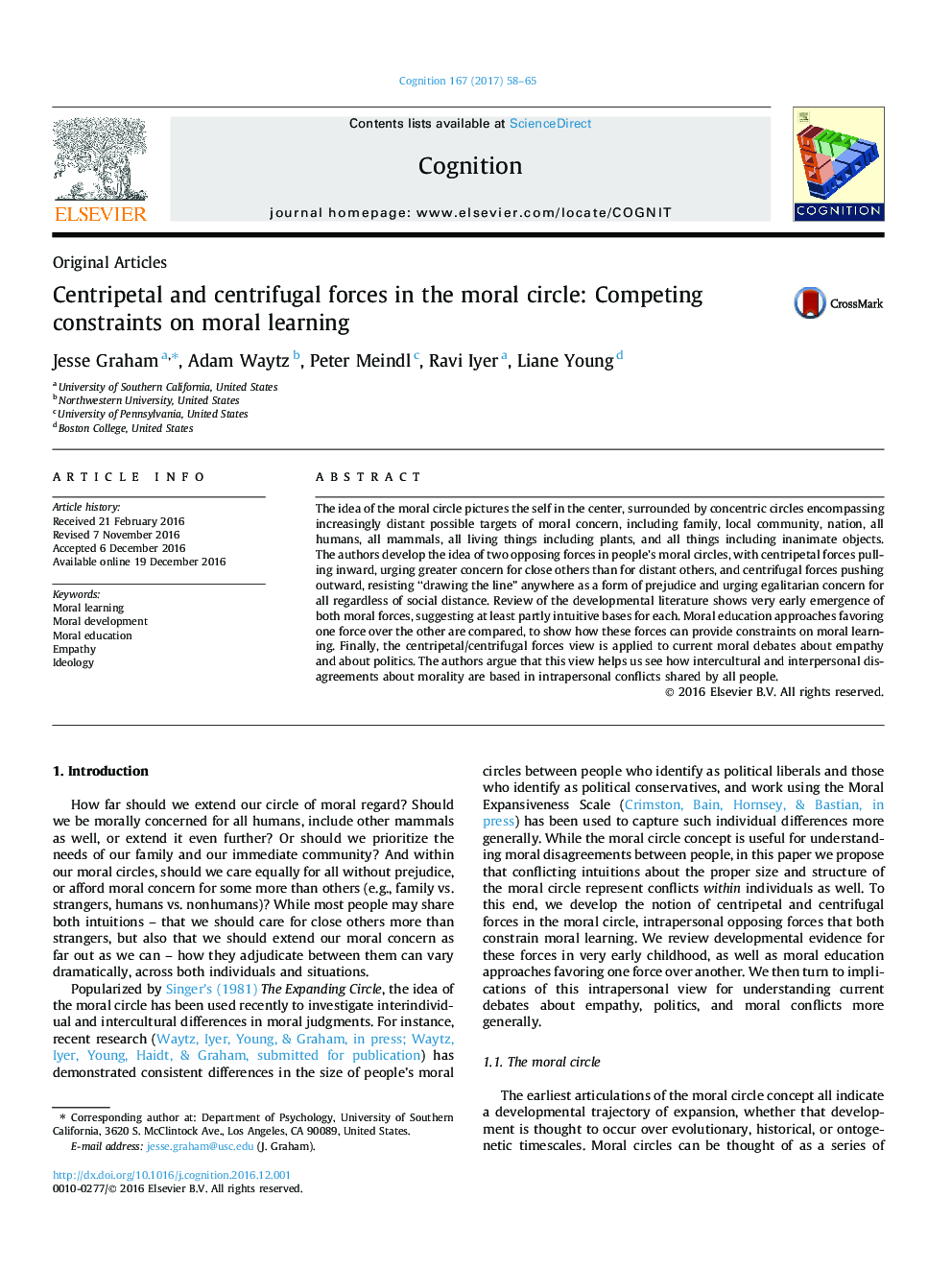| کد مقاله | کد نشریه | سال انتشار | مقاله انگلیسی | نسخه تمام متن |
|---|---|---|---|---|
| 5041479 | 1474100 | 2017 | 8 صفحه PDF | دانلود رایگان |

- The authors develop the idea of two opposing forces in people's moral circles.
- Centripetal forces pull inward, urging greater concern for close others than for distant others.
- Centrifugal forces pushing outward, urging egalitarian concern for all regardless of social distance.
- Moral education approaches show how these forces can provide constraints on moral learning.
- The moral forces view is applied to current debates about empathy and about politics.
- Disagreements about morality are based in intrapersonal conflicts shared by all people.
The idea of the moral circle pictures the self in the center, surrounded by concentric circles encompassing increasingly distant possible targets of moral concern, including family, local community, nation, all humans, all mammals, all living things including plants, and all things including inanimate objects. The authors develop the idea of two opposing forces in people's moral circles, with centripetal forces pulling inward, urging greater concern for close others than for distant others, and centrifugal forces pushing outward, resisting “drawing the line” anywhere as a form of prejudice and urging egalitarian concern for all regardless of social distance. Review of the developmental literature shows very early emergence of both moral forces, suggesting at least partly intuitive bases for each. Moral education approaches favoring one force over the other are compared, to show how these forces can provide constraints on moral learning. Finally, the centripetal/centrifugal forces view is applied to current moral debates about empathy and about politics. The authors argue that this view helps us see how intercultural and interpersonal disagreements about morality are based in intrapersonal conflicts shared by all people.
Journal: Cognition - Volume 167, October 2017, Pages 58-65